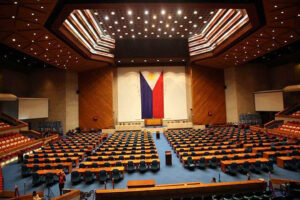A CONGRESSMAN last week said he’s looking at amending a House bill extending foreign investors’ land lease limits once it’s up for plenary discussion, up to 198 years from the current 99-year proposal.
The House trade and industry committee last week Tuesday approved a bill seeking to extend foreign investors’ land lease limits to 99 years from 75 years as part of state efforts to funnel foreign investments into the country.
House Bill (HB) No. 10755 sought to liberalize land lease terms for foreign investors to boost investments into the country amid an “increasingly competitive market.”
“My proposal is to open [it further], 99 years plus 99 years. If you’re looking at improving [the investment climate]… let’s not limit it at only 99 years,” Iloilo Rep. Ferjenel G. Biron, who heads the House trade and industry committee, said in Filipino during an interview with BusinessWorld.
Mr. Biron said the committee did not adopt his longer land lease limit proposal as he needed to first “consult the wisdom of the authors.” “[But] I’m sure Speaker [Romualdez] is open to my recommendation.”
The 1987 Philippine Constitution prohibited foreigners from owning land in the country, but the 31-year-old Investors’ Lease Act allowed foreign investors to lease private land for an initial period of 50 years, renewable once for a period no longer than 25 years.
The House would likely pass the bill before Congress goes on break in mid-December, according to Mr. Biron. “Since it’s a LEDAC (Legislative Executive Development Advisory Council) bill, it would be given priority.”
Extending the land lease limit for foreign investors could help improve the Philippines’ appeal as an investment destination in Southeast Asia, John Paolo R. Rivera, a senior research fellow at the Philippine Institute for Development Studies, said.
“It could improve the country’s competitive position relative to neighboring economies such as Indonesia and Vietnam as it would offer a more stable long-term horizon for foreign investors,” he said in a Viber message.
Mr. Biron said the proposal to extend the current land lease limit is a “common sentiment” among foreign investors.
Korean Chamber of Commerce Philippines President Joseph Um in October said lifting foreign ownership restrictions on land could help attract more South Korean investors into the country.
“By offering foreign investors a longer lease term, the Philippines could see increased interest in long-term investments, particularly in critical sectors like manufacturing, technology, and tourism. This could drive more job creation, technology transfer, and higher local spending,” Mr. Rivera said.
However, the government should look at addressing other issues hounding foreign investments into the country, such as high-power costs, skilled labor shortage and institutional corruption, Michael Henry Ll. Yusingco, a fellow at the Ateneo de Manila University Policy Center, said in a Facebook Messenger chat.
“The proposal to increase the land lease limit to 99 years really won’t make much difference in making the Philippines more attractive to foreign investment, and certainly won’t mean anything for long-term economic development,” Jose Enrique “Sonny” A. Africa, executive director at think tank IBON Foundation, said in a Viber message.
Lawmakers should look at crafting a “well-designed industrial policy” that would enable foreign investments to trickle down into Filipino-owned firms, improving their domestic capital accumulation and domestic research and development for sustainable economic gains, he added.
“The proposal is a trivial measure and just highlights how the country’s economic development policy is so narrowly obsessed with trying to please foreign investors and is so unable to envision long-term structural transformation,” Mr. Africa said. — Kenneth Christiane L. Basilio

